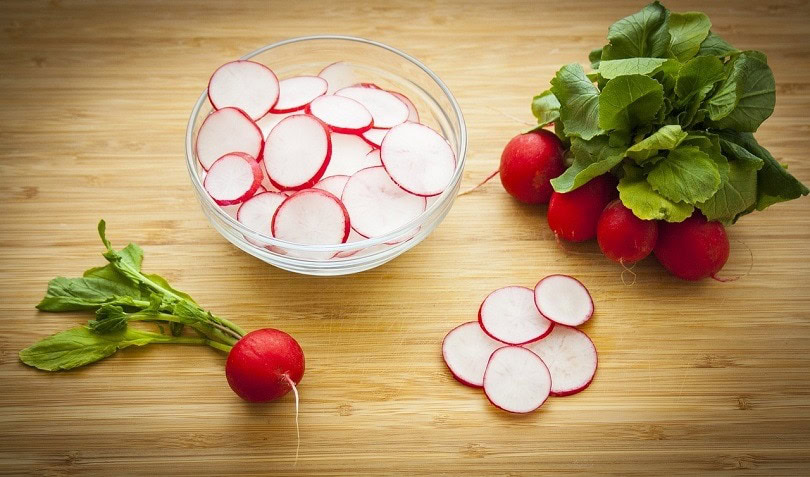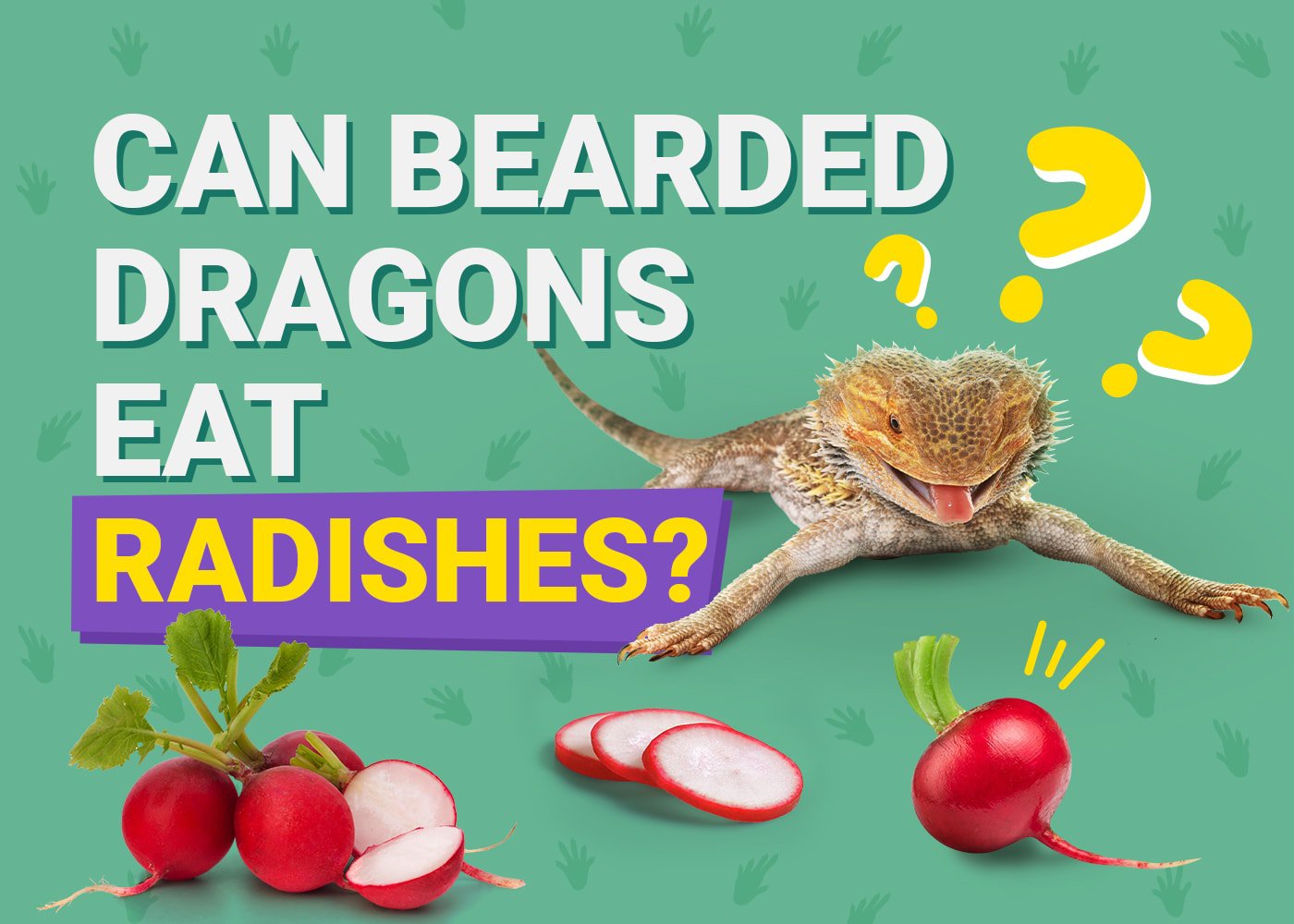VET APPROVED

The information is current and up-to-date in accordance with the latest veterinarian research.
Learn more »Click to Skip Ahead
Radishes are inexpensive and easy to find, so it’s natural for many bearded dragon owners to wonder if their pets can eat these vegetables. The short answer is yes, beardies can eat radishes, but there are several things to consider before making them a regular part of your dragon’s diet. Here, we go over the nutritional facts and possible risks of feeding these veggies to a bearded dragon. There’s also a short guide on how best to serve them.

Radish Nutritional Information & Safety
Radishes do contain nutrients that are beneficial for bearded dragons, which is why they are great occasional additions to their salad meals.
- Water: 27 grams (g)
- Carbohydrates: 4 g
- Total Fat: 1 g
- Total Protein: 68 g
- Fiber: 1.6 g
- Calcium: 25 milligrams (mg)
- Phosphorus: 20 mg
Radishes are also excellent because they have low numbers of oxalates.
Risks Associated With Radishes
Despite their benefits, radishes do have a few drawbacks that render them somewhat controversial.
Calcium-to-Phosphorus Ratio
For healthy adult bearded dragons in maintenance, their diet should have a calcium-to-phosphorus ratio of anywhere between 1.5:1 and 2:1. This means the calcium should be around twice as much as the phosphorus. The recommended ratio for juveniles is around 2:1, and dragons that are breeding (particularly females) require a higher calcium intake compared to adults that are in maintenance.
In radishes, calcium is only just slightly higher than phosphorus, around 1.2:1. Such a ratio is undesirable for the long-term health of a bearded dragon. Therefore, radishes should be viewed as treats and not major components of their daily salad servings.
Goitrogens
Goitrogens are substances that disrupt the production of thyroid hormones, which are required for the metabolism process in a bearded dragon’s body throughout their life.
Radishes are naturally high in goitrogens, so overconsumption may disrupt a bearded dragon’s normal metabolism. Prolonged disturbances of the thyroid hormones may lead to an enlarged thyroid and a condition known as goiter.
How Should I Prepare Radishes for My Bearded Dragon?
Bearded dragons can consume the radish’s leaves and root (the vegetable). It is advised to mix the leafy greens of the radish plant with other greens that you regularly provide and make them part of your pet’s rotational salad composition.
Serve the root in moderation, about once or twice a month as part of their salad mix for the day. Before giving the leaves or root vegetables to your pet, thoroughly wash the produce to remove any chemical or pesticide residue.
Next, chop the produce into small pieces (about 1 x 1 cm in size), and mix them with other greens, vegetables, and fruits, such as kale, dandelion greens, peppers, carrots, and apples, to make a small salad. You may also sprinkle it with a calcium and vitamin D supplement. Serve it to your bearded dragon as you normally would.

- You may also be interested in: Can Parrots Eat Radishes?

Final Thoughts
Radishes are not poisonous or toxic for bearded dragons and are generally safe for consumption. However, their less-than-ideal calcium-to-phosphorus ratio and the presence of goitrogens mean they shouldn’t be served to your bearded dragon too frequently or in high quantities.
Still, radishes can safely be incorporated into a beardie’s diet, and in moderation, they can be fantastic additions to their culinary profile. As always, though, if you have doubts about your bearded dragon’s diet, we recommend reaching out to your exotic veterinarian for more advice.
Featured Image Credit: kungfunamhuynhdao, Pixabay










